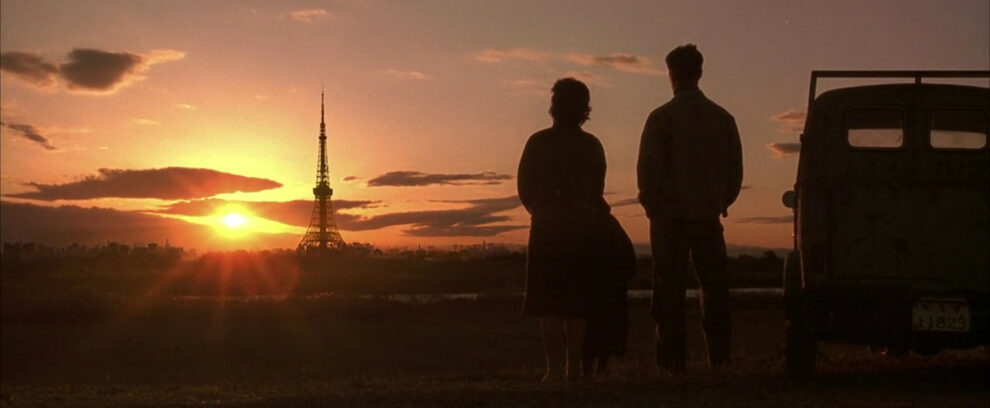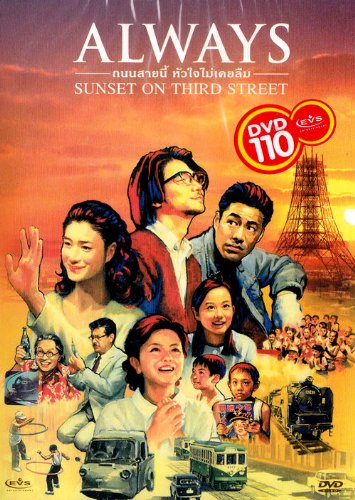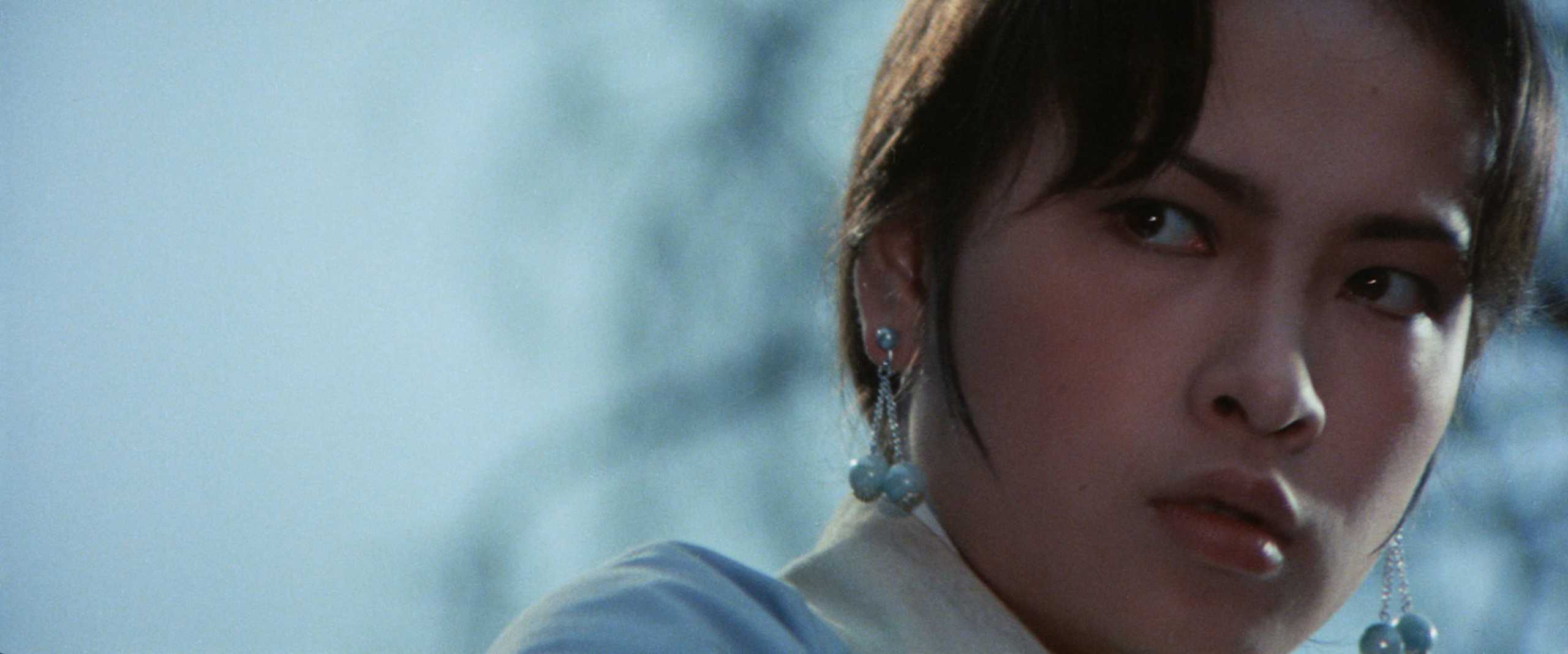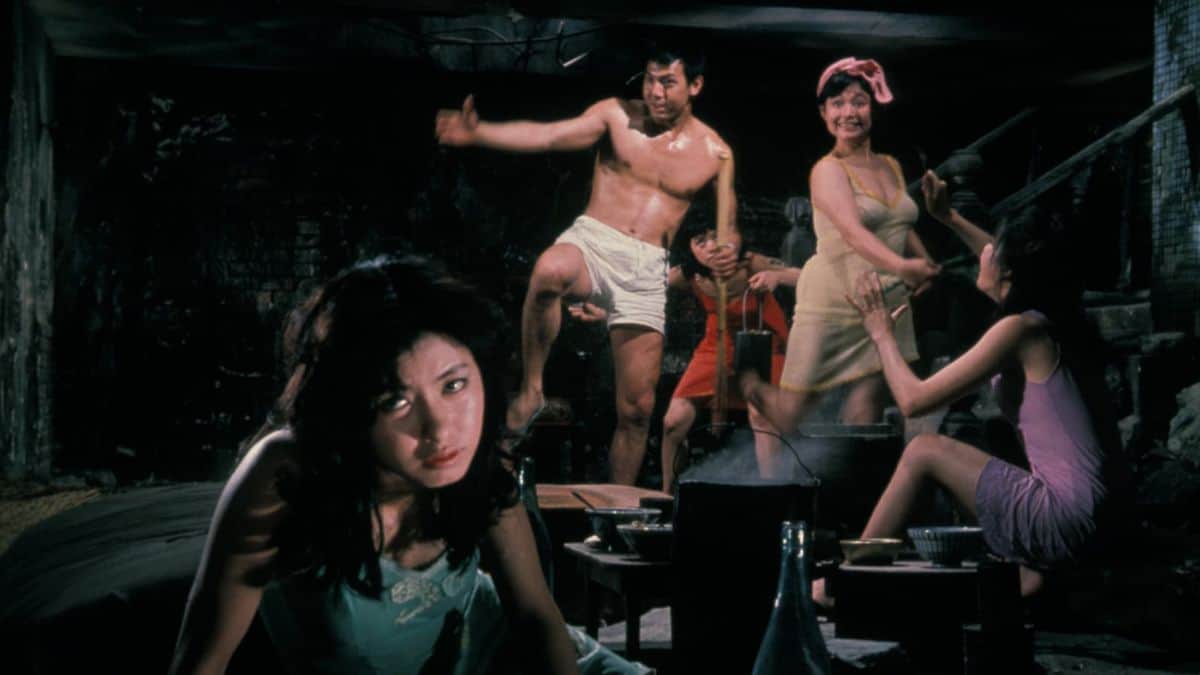“Always: Sunset on Third Street” is based on the manga series “Sunset on Third Street,” written and illustrated by Ryohei Saigan, which follows the lives of various characters in post-war Japan. Upon release, “Always: Sunset on Third Street” would be a box-office hit, receive an overwhelmingly positive reception, and be picked as the Picture of the Year at the 2006 Japanese Academy Awards. The success of the movie would spawn two sequels.
Set in 1958 Japan, during the post-war economic recovery, technology is evolving, with the rising advent of television and the building of the Tokyo Tower. The primary location is a lower-income neighborhood in the Yuhi district. Rural schoolgirl Mutsuko Hoshino arrives in the metropolitan city excited to work as an apprentice at Suzuki Auto. Yet, she's perplexed when she learns that her workplace is a rundown auto repair shop run by short-tempered mechanic and family man Norifumi Suzuki. Living across from them is Ryunosuke Chagawa, a washed-out writer running a small store who's desperately trying to regain his footing but to no avail. One night, things take an unexpected turn for him while visiting a newly open sake bar run by a beautiful and kind woman named Hiromi Ishizaki, whom he forms an attraction to. While bringing in business, she simultaneously cares for an abandoned child named Junnosuke Furuyuki. She seeks Ryunosuke for help, and while smitten in a drunken state, he accepts guardianship of the boy.
“Always: Sunset on Third Street” is a heavily romanticized depiction of history, viewing the Japanese economic recovery with nostalgia, a period of future hope rising from the ashes of World War II, all while technology was becoming more prominent in the country. The gradual rising of Tokyo Tower throughout the movie highlights that sense of growth, exiting a past era and slowly entering a new one. Yet, the movie thankfully doesn't devolve into insipid post-war nationalism. Instead, it's a film that aims to entertain and invoke various emotions while utilizing its historical backdrop, and Takashi Yamazaki greatly succeeds in what's a story of pain and loss but also love and hope. Its playful humor is delightful, occasionally exaggerated in manga-style fashion, thankfully without becoming gratingly obnoxious, while most of the feature's funniest moments are the humorous dialogue exchanges. Its more dramatic sections are heartwarming as the audience sees people struggling and seeking one another for support and comfort through those hardships, while becoming better people.
Check also this interview
For every over-the-top moment, there's plenty of realism in its character drama. Some of the leads become closer to one another, yet circumstances force them to drift apart. Another major factor in the film's humanism is its portrayal of perception and the working class. Tokyo is generally viewed as a successful city in Japan, yet a metropolitan environment, like any other, is still bound to have its more rundown sections. With the movie set during a time when the Second World War had ended not that long ago, those struggles are highlighted here. The neighborhood of Yuhi district is just as much a character as those who inhabit the area. Takashi Yamazaki takes full advantage of making this part of Tokyo, even in its stylish direction, feel real and wisely highlighting the citizen aspect to help the audience resonate more with the protagonists of the story. One of the most amusing and touching sequences involves the folks within the neighborhood gathering to watch a wrestling match on a home television, which, to them, is like seeing the event in person.
Cinephiles are bound to get a kick out of easter eggs sprinkled throughout “Always: Sunset on Third Street.” Takashi Yamazaki's love for Hollywood and Steven Spielberg shows. There are also nods to the works of acclaimed Japanese filmmakers like Akira Kurosawa and Yasujiro Ozu. Kurosawa is another director whom Yamazaki admires, and the focus on the struggling citizens in a grungier part of Tokyo is reminiscent of “Dodes'ka-den.” The emphasis on television and even a sweater that one of the characters in the movie wears are nice nods to Ozu's humorous feature “Good Morning.”
From the leads to numerous supporting players, some enjoyable performances give the characters personality, all while they wonderfully play off each other. Maki Horikita adds believability to Mutsuko Hoshino's journey as a country girl adjusting to city life while returning to reality from her initial glamorized expectations. Kenta Suga brings much charm and innocence to his role as Junnosuke Furuyuki while effectively balancing the dramatic material he has to work with. Shinichi Tsutsumi delightfully hams it up as Norifumi Suzuki. However, he also knows when to dial it down for moments that show his interactions with his wife Tomoe and child Ippei, respectively played by Hiroko Yakushimaru and Kazuki Koshimizu. Ryunosuke Chagawa initially begins as a pathetic jerk yet slowly regains his humanity while gradually forming a bond with Junnosuke, greatly projected through Hidetaka Yoshioka's charisma. Koyuki is marvelous in her portrayal as Hiromi Ishizaki, who is recognized by the locals for her alluring presence yet, beyond that, she displays heartwarming humanity, while the surrogate family dynamic Koyuki, Yoshioka, and Suga gradually form is touching. Many of the locals in the Yuhi district are also memorable, such as the ones played by Tomokazu Miura and Masako Motai.
Production-wise, Takashi Yamazaki, Shirogumi, and Robot Communications' collaborative efforts are noticeably impressive here. The art direction of “Always: Sunset on Third Street” is vibrant and colorful, with striking set pieces that fittingly capture the historical period in which the movie is set, further helped by other subtle touches, including the costume wardrobe. The CGI is quite good and a major improvement from the 3D imagery in Yamazaki's previous two films. Yet, beyond the special effects and historical attention to detail, Kozo Shibasaki's cinematography is exceptionally refined, and the editing is consistent. Naoki Sato's music score is bombastic without becoming detrimental, appropriately matching the movie's tone while being pleasant on the ears. The featured song “Always” by D-51 nicely captures a warm, comforting feeling.
Funny and moving, “Always: Sunset on Third Street” is wonderful. Beyond Takashi Yamazaki securing his filmmaking footing, it's superbly directed and written, embracing an animated style that thankfully never becomes obnoxious and is instead entertaining to watch. The film's colorful visuals will enthrall audiences, as will its memorable characters and compelling look at life during the early years of the Japanese economic miracle post World War II.
















